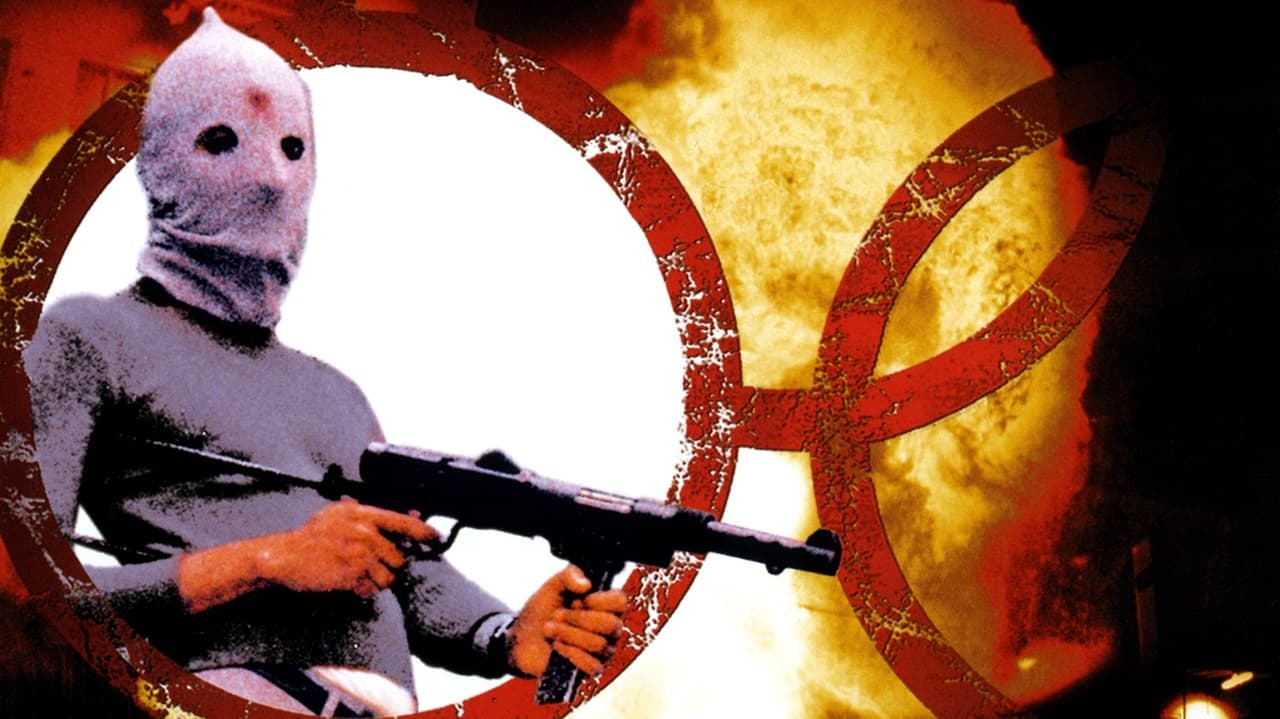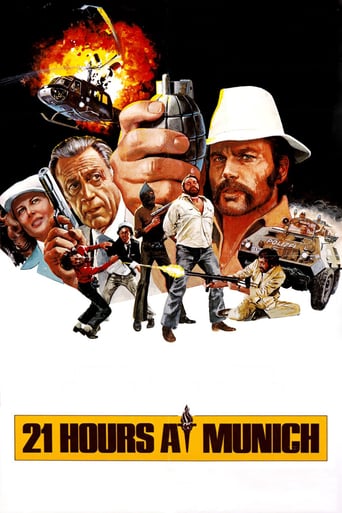

Excellent, Without a doubt!!
... View MoreIt's fun, it's light, [but] it has a hard time when its tries to get heavy.
... View MoreThis is one of the few movies I've ever seen where the whole audience broke into spontaneous, loud applause a third of the way in.
... View MoreThe best films of this genre always show a path and provide a takeaway for being a better person.
... View More21 Hours At Munich tells the tragic story of the Black September terrorists who took Israeli athletes hostage at the 1972 Olympics and issued a demand to the government of Israel that a couple of hundred of their comrades be freed for the lives of these athletes. It was a story that gripped the world at the time and is still sadly relevant for today.This was a new phenomenon at the time, mindless terrorist acts against civilians and governments then and now can't quite come to grips with the concept of pure evil wrapped in a political cause. Black September no doubt picked the target as Munich not only because of the Olympics, but because of the special significance the city has in the rise of Adolph Hitler. Maybe they thought some sympathy from the authorities might linger from Nazi days.In that they were much mistaken. The West German government was as mortified and embarrassed by the events as anyone else in the civilized world. This was their opportunity to exhibit a post Nazi Germany to the world and it was horrifyingly blown.William Holden played the head of the Munich PD in charge of dealing with the problem and it's a sincere and level performance he gives. Chancellor Willy Brandt of West Germany is played by Richard Basehart who is the liberal politician who can't grasp even after Hitler there are some folks that just can't be reasoned with. Other performances of note are Franco Nero as the charismatic Black September leader, a picture of homicidal malevolence just itching to kill and Shirley Knight the negotiator for Holden and the Munich PD.Stephen Spielberg did a great job in putting this film together which should be required viewing for those finding justice in brutal acts of homicide.
... View MoreThe film does a good job of depicting the terrorist attack on Israeli athletes at the 1972 Olympics. Unlike "Munich" which only spends a few minutes dramatizing the terror attacks & spends the rest of the film on Mossad actions tracking down the terrorists, this film shows the horror of the terror attack.A much better film on the subject is the documentary "One Day in September" (1999) which won an Oscar for best documentary. The film does a good job of showing the ineptitude of German police forces & the intransigence of the IOC, which would not suspend the games for even one day while the terrorists murdered athletes & held others hostage.
... View More21 Hours at Munich (1976) *** (out of 4) Pretty good made for TV movie about the 1972 Olympics in Munich, Germany where Arab terrorists kidnapped and murdered eleven Israeli athletes. I don't know the entire history of the events surrounding this attack but if this film stays true to what really happened then I can't help but blame the German government and their security at the Olympics. I really couldn't believe how stupid some of the decisions made where and I really wonder what this event would do in today's world where God knows there's a lot more media. As for the film itself, it's entertaining throughout but it never gets too dramatic and the direction lacks any real style or flair. William Holden gives a good performance as the head Munich guy trying to get everything done while Franco Nero steals the show as the head terrorist. Nero is downright brilliant in his part with a look that could kill. I liked how Nero played the part of a thinking man and this really comes across well.
... View MoreAccurate but cold vision of the frightful events that took place in Munich in 1972 when the Israeli delegation of athletes is kidnapped by a bunch of Arab terrorists.The movie tries to be a faithful documentary of this political disaster but although his serious and impartial view - a good point - the outcome is just a cold and not gripping retelling.I give this a 5 (five).
... View More